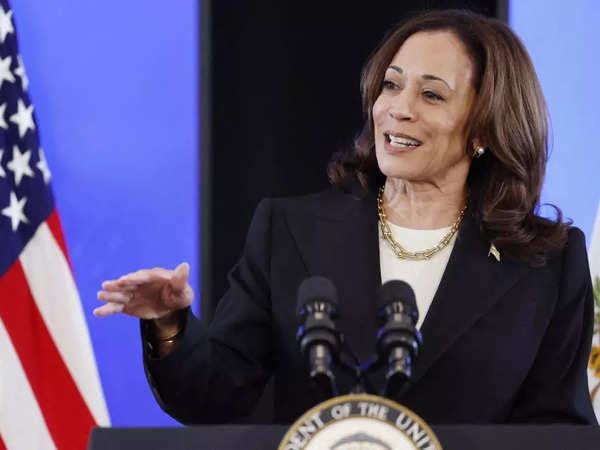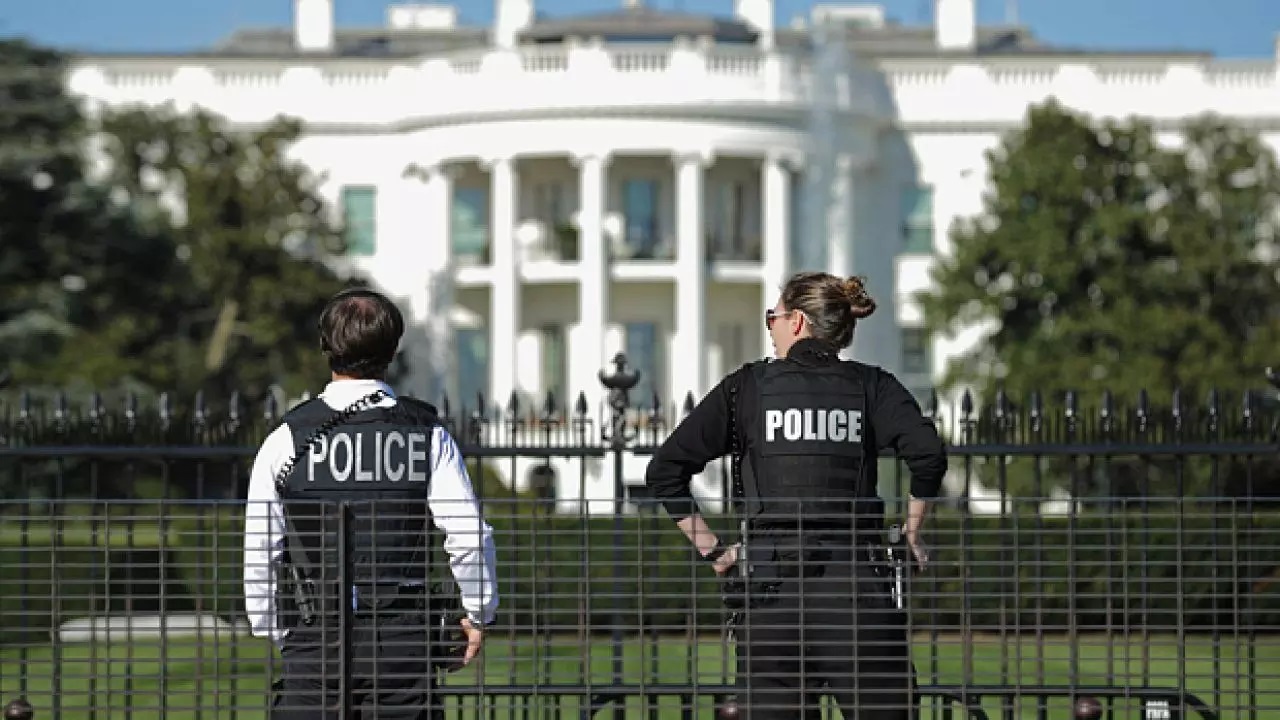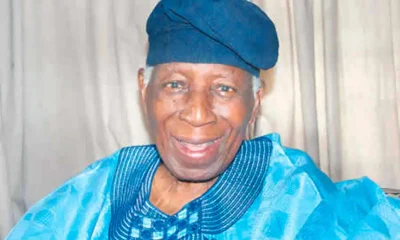Foreign
White House race: Factors that worked against Kamala Harris

When Harris argued that her Republican rival was no champion of the working class, the union bosses grilled her, questioning whether she and President Joe Biden had done enough for union workers, according to a Teamster leader who recounted the Sept. 16 meeting to Reuters.
Within days, the union publicly embarrassed Harris by declining to endorse a Democratic presidential candidate for the first time since 1996.
In the wake of Harris’ loss in the 2024 presidential election, her tense exchange with union leaders underscores a critical failure of her campaign – connecting with working-class voters anxious about the economy and high prices.
Following Biden’s dramatic withdrawal just months before Election Day, Harris threw her campaign together as if it were an airplane being built while in flight, her advisers told reporters.
The 60-year-old former prosecutor and U.S. senator pressed a case that Trump was a threat to democracy and women’s rights while promoting a populist economic platform and reproductive freedoms.
Her entrance upended a race that her party had looked set to lose. She made history as the first woman of colour at the top of a major party ticket.
She triggered a surge in enthusiasm and broke fundraising records – raising one billion dollars in less than three months.
She drew endorsements from celebrities ranging from pop star Taylor Swift to actor and former California Governor Arnold Schwarzenegger.
But Harris’ campaign ultimately failed to overcome deep-seated voter concerns about inflation and immigration – twin issues that opinion polls showed favoured Trump.
Her loss underscores a profound shift in American politics over the past decade as blue-collar voters have turned increasingly Republican – a trend Trump appears to have accelerated.
Harris also struggled to counter another Trump-era trend – a torrent of misinformation unprecedented in modern U.S. elections.
An avalanche of misrepresentations and falsehoods about her record was spread by the former president and amplified on right-wing websites and media, including conspiracy theories on issues ranging from migrant crime to voter fraud.
When asked by Reuters during the race about misinformation amplified by Trump, his campaign officials typically either repeated the falsehoods or did not respond to requests for comment.
By early Wednesday morning, Trump had won 279 electoral votes to Harris’ 223, with several states yet to be counted.
This account of how Harris lost is based on Reuters interviews with Harris campaign staffers, White House officials, Democratic Party advisors, and close allies.
It was always going to be a heavy lift. The U.S. has only once elected a president – Barack Obama in 2008 and 2012 – who wasn’t a white man.
As the daughter of an Indian mother and Jamaican father, Harris had risen higher in the country’s leadership than any other woman.
The only other woman to get as close as she did – Hillary Clinton, defeated by Trump in 2016 – staked her candidacy in part on becoming the first female president.
In the wake of Clinton’s loss, Harris resisted putting her identity at the center of her campaign, said close aides and advisors. Instead, she tried to galvanise voters on issues that mattered to women and Black voters in the election – from abortion rights to middle-class tax cuts and housing affordability.
But those messages struggled to break through at a time when many voters were fixated on rising consumer prices during the first three years of the Biden administration.
“Despite fairly strong economic growth, especially after a major global pandemic, most Americans weren’t feeling like they were getting ahead economically,” said Melissa Deckman, a political scientist and chief executive of Public Religion Research Institute, a nonpartisan research firm.
“The Harris campaign did not necessarily do a good job of explaining how her policies would help the middle class, or at least that message wasn’t really resonating with a lot of voters.”
A majority of voters said they trust Trump more to handle the economy, with 51 per cent saying they did so compared to 47 per cent for Harris, according to a preliminary national exit poll conducted by data provider Edison Research.
And the voters who identified the economy as their primary concern voted overwhelmingly for Trump over Harris – 79 per cent to 20 per cent.
The economy proved to be a much bigger concern among voters than reproductive rights, with 31 per cent of voters saying the economy mattered most in deciding how to vote compared with 14 per cent who cited abortion.
The election also saw a large gender gap. Harris won 54 per cent of women voters in the country, while Trump won 44 per cent, the preliminary exit polls showed.
The Harris and Trump campaigns and the White House did not immediately respond to requests for comment.
“America has given us an unprecedented and powerful mandate,” Trump said early on Wednesday to a roaring crowd of supporters at the Palm Beach County Convention Center.
The election was punctuated by dramatic twists, including two assassination attempts against Trump and the stunning decision by Biden to abandon his re-election bid on July 21.
Democrats coalesced behind Harris with astonishing speed, locking up her party’s nomination within two weeks, excited by her potential to flip the generational argument on Trump.
Two decades her senior, Trump had successfully cast the 81-year-old Biden as a frail and confused old man. She would turn that on its head, many Democrats hoped.#
Some Democratic strategists questioned the wisdom of one of her first big decisions: picking Minnesota Governor Tim Walz as running mate over Pennsylvania Governor Josh Shapiro, a deft speaker with proven political strength in a must-win state.
Her campaign had hoped the gun-owning Walz, a liberal policy champion and plain-speaking National Guardsman from the Midwest, would help her win over rural white voters.
Walz had generated buzz before Harris picked him by branding Trump and his running mate, Senator JD Vance of Ohio, as “weird” on national television in July, winning Democratic hearts and media attention.
Later, though, Walz gained unwelcome attention for misstatements of his biography, including his military service, and for an uneven debate performance against Vance.
Walz and Vance didn’t immediately respond to requests for comment.
Still, the Harris campaign believed her signature issues – reproductive rights and Trump’s divisiveness – would energize a coalition of women,
Black voters, young Americans, independents and “Never Trump” Republicans, sweeping her to the White House.
Well before the race began, Harris emerged as a spokesperson for abortion rights.
When the U.S. Supreme Court in 2022 officially reversed Roe v. Wade, declaring the constitutional right to abortion no longer existed, the setback for women’s reproductive rights created an unexpected opening for Harris.
The ruling catapulted her from the political periphery into the heart of America’s culture wars.
Opinion polls showed most Americans disapproved of the court’s decision – and Harris became the face of an issue that Democratic strategists saw as electoral gold.
For the first time in Biden’s presidency, he handed a decisive issue entirely to his vice president.
She went on the road, speaking forcefully on a subject that played an outsized role in helping Democrats stave off an expected bloodbath in the 2022 congressional elections.
After the midterms, with the Democrats having held the Senate and swung to a slight minority in the House of Representatives, Harris was now seen as a viable future leader in the party.
Still, even after Biden stepped aside, concerns lingered among some top White House aides over the former San Francisco district attorney’s political skills – including a perception that she hadn’t made a mark as VP, her short-lived campaign for the 2020 Democratic nomination and her limited experience courting conservative voters in battleground states.
Some also questioned whether she could overcome the long history of racial and gender discrimination in the U.S.
After securing the nomination, Harris initially put many of those concerns to rest. She revitalized a beleaguered Democratic campaign, attractingrecord-funding and a groundswellofsupport,
She soon moved ahead of Trump in the polls, a sign she was sparking enthusiasm among voters, particularly among women.
Trump had previously been seen as the frontrunner, partly based on his perceived strength on the economy after several years of high inflation under Biden.
She aced her first big test – a Sept. 10 televised debate against Trump.
As Harris’s team prepared for what would be her only in-person face-off with Trump, they focused on ways to unnerve the former president and draw attention to his frequent falsehoods on policies, according to several aides involved in the preparations.
Harris holed up in Pittsburgh with advisers and conducted mock debates for the prime-time showdown, the aides said.
The strategy paid off. Harris appeared to get under her rival’s skin during the debate. She pressed Trump on the economy, Ukraine, healthcare, the January 2021 Capitol riots and abortion, leaving him rattled and struggling to respond.
Fundraising spiked: Her campaign said it raised 47 million dollars in the 24 hours after the debate.
Most voters thought Harris had won, polls showed.
Trump shot down offers for another debate, claiming he’d already beaten her.
On the campaign trail, Harris mocked Trump’s debate performance, including his comment that he had “concepts of a plan” to replace a federal health care law.
As she gained in polls, Harris’ campaign believed she was opening up states that had been out of reach for Biden, including North Carolina, where the president had his narrowest loss against Trump in 2020 and where she was drawing even in the polls with Trump.
North Carolina was the scene of her next big test, the late September Hurricane Helene, one of the deadliest storms to hit the U.S. in the last 50 years.
The storm shifted focus from messages at the foundation of Harris’ campaign to the handling of the disaster by the Biden-Harris administration.
It hit just as her lead was narrowing. Trump went on the attack, criticizing the Democratic administration’s response to the disaster and tying it to his strongest issue, immigration.
As the death toll rose and swathes of North Carolina lay devastated, Trump amplified and spread falsehoods, including a claim that Harris spent disaster-assistance money on housing illegal migrants.
In response to a recent request for comment by Reuters about false claims about how disaster funds were being used, the Trump campaign repeated accusations that money had been spent on housing migrants in the country illegally.
Harris cut short a campaign swing and flew to Washington on Sept. 30 for a briefing on Biden’s emergency response.
On her plane, three staffers sat on the floor, ripping apart briefing books, replacing the pages with new notes, a Reuters reporter witnessed.
The disaster, which killed more than 200 people, marked a shift in the race, as misinformation around the administration’s response and Trump’s hardline rhetoric on immigration gained traction.
The baseless claims included that the government covered-up deaths, confiscated charitable donations and diverted disaster funds to help immigrants.
Harris’ campaign struggled to address both the false claims and voters’ concerns about an uptick in illegal border crossings during Biden’s presidency.
One jurisdiction that illustrated the risks for Harris was Buncombe County, a North Carolina Democratic stronghold of about 280,000 people hammered by the storm. In its aftermath, Democrats stopped targeting potentially persuadable Republican voters there because of concerns they had become too hostile amid the misinformation, Kathie Kline, Buncombe County Democratic chair, told Reuters.
In the end, Trump won the state.
As the race tightened through October, and polls indicated a toss-up, alarm spread among Democratic strategists.
They focused on shoring up the so-called Blue Wall of Democratic states: Michigan, Pennsylvania and Wisconsin.
Eight years ago, when Trump beat Hillary Clinton, he breached the Blue Wall by winning all three states, each by less than a percentage point.
In 2020, Biden won them back. Holding the Blue Wall now was Harris’ best path to the White House, the strategists reasoned.
But they had a problem: Michigan and the Gaza War.
Michigan’s large population of Arab Americans and Muslims helped cement Biden’s 2020 victory in the state.
Trump turned off many of these voters in his first term, in part by banning immigration to the U.S. from a number of Muslim countries early in his tenure.
In the race’s final stretch, Muslim and Arab-American voters told Reuters they were disappointed Harris did not distance herself more from Biden’s unwavering support of Israel during the Gaza war.
In the final weeks, Trump aggressively courted their vote.
Many said they would sit out the election or vote Republican.
Harris staffers knew that disillusioned Muslim and Arab-American Democrats were a risk.
“It could cost us the election,” said a senior Michigan operative for Harris in July.
The campaign ultimately concluded it was impossible to fully win back those voters.
To offset their loss, campaign officials said they focused in the final weeks on marshaling enough support from union workers and Black voters in Detroit, the nation’s largest Black-majority city.
But few issues threatened Harris like inflation.
Her campaign had hoped the economic recovery from the pandemic would be a winning issue.
Growth is markedly more robust in the U.S. than in other major industrial nations.
Stock-market indexes are near record highs.
Instead, the issue eroded Democratic support throughout much of 2024 as union workers and non-college-educated white voters broke for Trump, polls showed.
Sharp increases in housing and food costs frustrated voters, overshadowing a strong job market.
Trump blamed Harris for the spike during her and Biden’s time in office.
While most unions have long supported Democratic candidates, rank-and-file workers in recent years have moved behind Trump, proving a decisive factor in his victory.
There were some positive signs for Harris.
The AFL-CIO, the largest federation of unions, saw a surge in female members supporting Harris and willing to volunteer for her, AFL-CIO President Liz Shuler told Reuters.
In the final weeks of the race, Harris’ momentum appeared to have stalled, with polls showing her edge over Trump narroewing.
By mid-October, the race was a dead heat in crucial states.
Democratic Vice President Kamala Harris’ election battle intensified as she gave up a marginal lead over Republican former President Donald Trump among U.S. registered voters nationally, Reuters/Ipsos polls showed.
A pronounced gap in polling between men and women had emerged, too. While Harris cut away at the Republicans’ longstanding edge with white voters overall by gaining ground with white women, Trump appeared to be boosting his advantage with men.
Harris shifted strategy in an attempt to win over more men and Republicans. The campaign dispatched running mate Walz on a tour in mid-October to reach male voters.
Harris also held campaign events with former lawmaker Liz Cheney, one of Trump’s fiercest Republican critics and one of the most prominent conservatives to endorse the Democrat.
Days later, Trump suggested Cheney should face gunfire in combat, drawing outrage among Democrats and pundits.
The vice president also sharpened her attacks on Trump.
In an Oct. 29 speech billed as her closing argument, Harris warned of the dangers of another Trump presidency.
He was “unstable” and sought “unchecked power,” she told a rally held at the spot in Washington where Trump addressed his supporters before they attacked the U.S. Capitol on Jan. 6, 2021.
With a well-lit White House behind her, she cast herself as a defender of democracy, unity, and freedom.
She also sought to reassure voters about the cost of living.
She said that Trump’s proposals to raise tariffs would amount to “a 20 per cent national sales tax” on imported goods.
She vowed to “protect hard-working Americans who aren’t always seen or heard.”
In the end, not enough of those Americans believed her.
(NAN)
Foreign
British actor Russell Brand charged with rape, sexual assault

British actor Russell Brand has been charged with rape, indecent assault and sexual assault between 1999 and 2005.
The charges relate to four separate women.
Brand has been interviewed multiple times by police since an investigation by the Sunday Times, the Times and Channel 4’s Dispatches in September 2023 revealed multiple serious allegations against him.
In a new video posted on X this afternoon, Brand said: “What I never was, was a rapist. I’ve never engaged in non-consensual activity.”
He added: “I’m now going to have the opportunity to defend these charges in court and I’m incredibly grateful for that.”
In a short statement, the Metropolitan Police said it had written to Brand to inform him that he was being charged with one allegation of rape, one allegation of indecent assault, one of oral rape and two further counts of sexual assault.
The force said it is alleged that:
In 1999 a woman was raped in the Bournemouth area.
In 2001 a woman was indecently assaulted in the Westminster area of London.
In 2004 a woman was orally raped and sexually assaulted in the Westminster area of London.
Between 2004 and 2005, a woman was sexually assaulted in the Westminster area of London.
Brand has been told to appear at Westminster Magistrates’ Court on 2 May, but he is believed to be in the United States.
In these situations, where a suspect may be overseas, prosecutors seek to agree the defendant’s return. If there is no co-operation from a suspect, authorities then consider seeking extradition.
In February a civil case for “personal injury” and “sexual abuse” was lodged against Brand at the High Court in London by an anonymous woman, referred to in court documents as AGX.
Police investigation
Jaswant Narwal of the Crown Prosecution Service said: “We have today authorised the Metropolitan Police to charge Russell Brand with a number of sexual offences.
“We carefully reviewed the evidence after a police investigation into allegations made following the broadcast of a Channel 4 documentary in September 2023.
“We have concluded that Russell Brand should be charged with offences including rape, sexual assault and indecent assault. These relate to reported non-recent offences between 1999 and 2005, involving four women.
“The Crown Prosecution Service reminds everyone that criminal proceedings are active, and the defendant has the right to a fair trial. It is extremely important that there be no reporting, commentary or sharing of information online which could in any way prejudice these proceedings.”
The Metropolitan Police’s detective superintendent Andy Furphy, who is leading the investigation, said: “The women who have made reports continue to receive support from specially trained officers.
“The Met’s investigation remains open and detectives ask anyone who has been affected by this case, or anyone who has any information, to come forward and speak with police. A dedicated team of investigators is available via email at CIT@met.police.uk.
“Support is also available by contacting the independent charity, Rape Crisis at 24/7 Rape and Sexual Abuse Support Line.”
Brand, who was born in Essex, rose to fame as a stand-up comedian, performing at the Hackney Empire in 2000 and later the Edinburgh Fringe.
He later moved into broadcasting, hosting national television and radio programmes.
The turning point in his career came in the mid-2000s, when he hosted Big Brother’s Big Mouth, a companion show to the hugely popular reality series Big Brother.
It provided the springboard he was looking for and led to him becoming one of the most sought-after presenters in the UK.
Brand went on to host the NME, MTV and Brit awards ceremonies, had his own debate series by E4, and fronted the UK leg of charity concert Live Earth.
But he was never far away from controversy, particularly at awards ceremonies – which provided the kind of live, anything-can-happen chaos where he was most at home.
His career included hosting radio shows on the BBC, in particular for 6 Music and Radio 2, between 2006 and 2008.
But inappropriate phone calls he made to the Fawlty Towers actor Andrew Sachs during a show in 2008 prompted a huge scandal – and ultimately led to his dismissal.
He rebounded with a Hollywood career, starring in films like Forgetting Sarah Marshall and Get Him To The Greek.
Recent years have seen him take a new direction – particularly since the start of the Covid pandemic in 2020.
Brand grew his following on YouTube as he discussed scepticism surrounding the disease.
He has developed a cult following for his views on politics and society, through videos which challenge the mainstream reporting of a range of subjects and often amplify conspiracy theories. He has also established himself as a wellness guru.
Foreign
U.S. prohibits personnel in China from romantic, sexual relationships with Chinese citizens

The U.S. government has banned American government personnel in China, as well as family members and contractors with security clearances, from any romantic or sexual relationships with Chinese citizens, The Associated Press has learned.
Four people with direct knowledge of the matter told the AP about the policy, which was put into effect by departing U.S. Ambassador Nicholas Burns in January shortly before he left China. The people would speak only on condition of anonymity to discuss details of a confidential new directive.
Though some U.S. agencies already had strict rules on such relationships, a blanket “non-fraternization” policy, as it is known, has been unheard of publicly since the Cold War. It’s not uncommon for American diplomats in other countries to date locals and even marry them.
A more limited version of the policy was enacted last summer prohibiting U.S. personnel from “romantic and sexual relations” with Chinese citizens working as guards and other support staff at the U.S. Embassy and five consulates in China. But Burns, the departing ambassador, broadened it to a blanket ban on such relations with any Chinese citizen in China in January, days before President Donald Trump took office. The AP was unable to determine exactly how the policy defined the phrase “romantic or sexual relationship.”
Two of the people with knowledge of the ban told the AP the new policy was first discussed last summer after members of Congress contacted Burns to express concern that restrictions on such relationships were not stringent enough. The House Select Committee on the Chinese Communist Party did not respond to a request for comment.
The new policy covers U.S. missions in mainland China, including the embassy in Beijing and consulates in Guangzhou, Shanghai, Shenyang and Wuhan, as well as the American consulate in the semi-autonomous territory of Hong Kong. It does not apply to U.S. personnel stationed outside China.
The only exception to the policy is U.S. personnel with pre-existing relations with Chinese citizens; they can apply for exemptions. If the exemption is denied, they must end the relationship or leave their position, the people said. Anyone who violates the policy will be ordered to leave China immediately.
The policy was communicated verbally and electronically to American personnel in China in January, but has not been publicly announced.
The State Department said it does not comment on internal matters. The National Security Council referred questions to the State Department. Burns, the former ambassador, did not reply to an AP request sent to his email address at The Cohen Group, a consultancy that he rejoined as vice chair in February.
Intelligence services across the world have long used attractive men and women to obtain sensitive information, famously during the Cold War. The State Department and other agencies with offices in China have long had stringent reporting requirements on personal relationships for American personnel stationed there, as well as rivals considered high intelligence threats such as Russia or Cuba.
Declassified State Department documents show that in 1987, the U.S. government barred personnel stationed in the Soviet bloc and China from befriending, dating or having sex with locals after a U.S. Marine in Moscow was seduced by a Soviet spy. Such restrictions were relaxed after the collapse of the Soviet Union in 1991, according to news reports at the time.
In China, a blanket ban on such relations has not been in effect for many years. Until the new ban in January, U.S. personnel in China were required to report any intimate contact with Chinese citizens to their supervisors, but were not explicitly forbidden from sexual or romantic relationships.
U.S. diplomats and intelligence experts say that Beijing continues to aggressively use so-called honeypots to access American secrets. In presentations before being stationed in China, U.S. personnel are briefed on case studies where Chinese intelligence services sent attractive women to seduce American diplomats, and warned that dozens of Chinese state security agents can be assigned to monitor any individual diplomat of interest.
Little is known about the U.S. government’s non-fraternization policies elsewhere, as they are considered classified. It is unknown how restrictive such policies are in other countries.
In recent years, tensions between Washington and Beijing have escalated over trade, technology and geopolitical competition.
Peter Mattis, a former CIA analyst and president of The Jamestown Foundation, a Washington-based think tank, said there were at least two publicized cases in which Chinese agents seduced American diplomats stationed in China, though he hasn’t heard of such a case in recent years.
Mattis added that another issue is that Chinese state security doesn’t gather intelligence just through spies, but also by pressing ordinary Chinese people for information, often through threats or intimidation. That, Mattis said, means any Chinese citizen who dates an American diplomat could be vulnerable to coercion.
“The MSS is willing to leverage any human connection that a target has to collect intelligence,” Mattis said, using an acronym referring to China’s Ministry of State Security. “This rule change suggests the MSS has gotten a lot more aggressive at trying to access the embassy and U.S. government.”
The Chinese foreign ministry did not comment on the ban, saying in a faxed statement that it was “more appropriate to ask the U.S. about this question.”
China also has been tightening already strict controls on its personnel overseas, according to Chinese regulations, news reports and four people familiar with China’s bureaucracy who spoke on condition of anonymity so they could discuss a sensitive topic. In recent years, Beijing began strictly enforcing regulations that bar promotions for Chinese civil servants with spouses who acquired foreign citizenship and restrict diplomats from spending an extended period of time in one country, forcing some to return to China.
China’s foreign ministry and many other government bodies bar their officials and staff from sexual or romantic relations with foreign citizens, while members of the Chinese military or police are generally barred from leaving China altogether without express approval from their supervisors.
Foreign
Suspicious package found near White House day after Trump imposed tariffs

Law enforcement is currently responding to reports of a suspicious package near the White House.
The area has been secured, and specialized units are on-site to assess the situation.
Authorities are urging the public to avoid the vicinity until further notice.
The section between 15th and 17th streets is completely shut down.
The bomb squad is now examining a suspicious package discovered in a dumpster nearby.
The package was found about 500 meters from the White House. President Donald Trump is currently in residence.
This is coming a day after Trump imposed tariffs on several countries, including US allies.
-

 Politics11 hours ago
Politics11 hours agoTinubu Gives Fani Kayode, Others New Appointments (See Full List)
-

 News11 hours ago
News11 hours agoDANGER! Ex-Soldier Abubakar Affan Vows to Kill VeryDarkMan ‘Like Deborah Samuel’
-

 News14 hours ago
News14 hours agoWhy NYSC maybe extended by FG- Minister
-

 News14 hours ago
News14 hours agoIbas moves to rehabilitate damaged Rivers LG secretariats
-

 News11 hours ago
News11 hours agoJust in: Ex-Oyo governor, Olunloyo is dead
-

 News14 hours ago
News14 hours agoWike commissions another solar-powered market in Abuja
-

 Economy14 hours ago
Economy14 hours agoCBN allocates $197.71m into FX market to support naira
-

 Economy13 hours ago
Economy13 hours agoCrude prices slump to $65 first time since 2021





